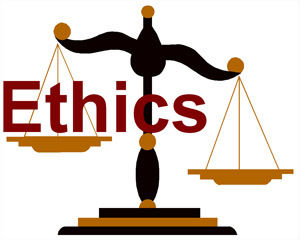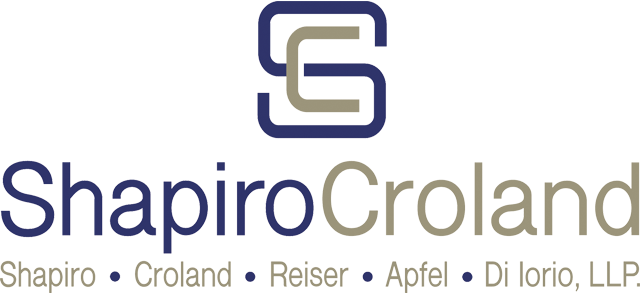 For almost 20 years partner Glenn R. Reiser has been defending lawyers in ethics proceeds brought by the Office of Attorney Ethics. Mr. Reiser served as former Chair of the Bergen County District II-B Ethics Committee, and prosecuted cases on behalf of the Committee.Thereafter, Mr. Reiser began representing attorneys charged with violations of the New Jersey Rules of Professional Conduct.
For almost 20 years partner Glenn R. Reiser has been defending lawyers in ethics proceeds brought by the Office of Attorney Ethics. Mr. Reiser served as former Chair of the Bergen County District II-B Ethics Committee, and prosecuted cases on behalf of the Committee.Thereafter, Mr. Reiser began representing attorneys charged with violations of the New Jersey Rules of Professional Conduct.
In today's world of social media and attorney review websites, a single blemish on an attorney's record can wreak havoc on his or her professional reputation. Shapiro Croland's attorneys are here to help defend your reputation. Attorneys are entitled to due process just like any other litigant appearing in federal court. Sometimes, a judge, litigant or adversary attorney will overreact to a situation and an overzealous prosecutorial agency will take the bait.
Our New Jersey law firm has successfully defended lawyers accused of engaging in fraud and dishonesty, among other rule violations.
Discipline of Attorneys Pursuant to New Jersey Rules of Professional Conduct and New Jersey Local civil Rule 104.1
In addition to being subjected to the New Jersey Rules of Professional Conduct, counsel admitted to practice before the United States District Court for the District of New Jersey can be independently disciplined under New Jersey Local Civil Rule 104.1.
Subsection (e) of New Jersey Local Civil Rule 104.1 spells out the attorney disciplinary procedure initiated at the District Court level, as follows:
(e) Disciplinary Proceedings
(1) Every attorney authorized to practice law or appearing before this Court, including those specially authorized for a limited purpose or in connection with a particular proceeding pursuant to L.Civ.R. 101.1, shall be subject to the disciplinary jurisdiction of this Court.
(2) When misconduct or allegations of misconduct which, if substantiated, would warrant discipline of an attorney, shall come to the attention of a Judge of this Court, and the applicable procedure is not otherwise mandated by these Rules, that Judge shall refer the matter in writing to the Chief Judge. The Chief Judge may refer the matter to the appropriate State disciplinary body or, if the Chief Judge conclude s that further investigation is warranted, he or she shall direct the Clerk to refer the matter to an attorney ("investigating counsel" ) who is admitted to practice before this Court to conduct such an investigation in order to determine whether a formal order to show cause should issue.
(3) The Clerk's order of reference to investigating counsel and other papers filed in the matter shall be placed under seal and shall remain under seal unless and until an order to show cause and complaint are issued under L.Civ.R. 104.1(e)(7), at which point an order shall be entered unsealing the entire file.
(4) Investigating counsel shall promptly, and with reasonable particularity, notify the respondent-attorney ("respondent") in writing of the pendency and nature of the investigation and solicit comments thereon in furtherance of the preliminary investigation. Every attorney, as set forth in L.Civ.R. 104.1(e)(1), has the affirmative obligation to cooperate in an investigation. Such cooperation shall include the production of documents and submission to interviews conducted by the investigating counsel as follows:
(A) Respondent shall serve upon investigating counsel a response to the inquiry within 30 days of service of the inquiry.
(B) Investigating counsel may conduct such discovery as is reasonable necessary to complete the investigation, which may include interviews of the respondent, depositions, requests for production of documents and requests for admissions.
(C) Respondent shall serve upon investigating counsel a response to any request for production of documents or request for admissions within 30 days of service of the request.
(D) The time within which to respond pursuant to (A) and (C) above may be extended by investigating counsel for good cause shown.
(E) If respondent fails to respond or otherwise fails to cooperate with investigating counsel, investigating counsel shall apply to the Chief Judge for appropriate relief which may include, but is not limited to, temporary suspension, pending compliance with this rule.
(F) Failure to cooperate may constitute an independent basis for the imposition of discipline unless it is based upon the proper assertion of a legal or constitutional right.
(5) Conclusion of No Formal Disciplinary Proceeding. Should investigating counsel conclude after investigation and review that a formal disciplinary proceeding should not be initiated against the respondent because (A) sufficient evidence of misconduct is not present, or (B) there is pending another proceeding against the respondent, the disposition of which in the judgment of the investigating counsel should be concluded before further action by this Court, or (C) any other valid reason exists, investigating counsel shall submit a report to the Chief Judge containing his or her findings and recommendations for disposition of the matter. If the Chief Judge concludes that no further action is required or that the matter should be deferred pending conclusion of another proceeding against the respondent, the Chief Judge shall instruct investigating counsel to so notify the respondent. If the Chief Judge concludes that further investigation is required he or she shall remand the matter to investigating counsel for further investigation in accordance with the Chief Judge’s directive.
Are you an attorney who is facing disciplinary charges before the United States District Court for the District of New Jersey? Hire experienced and qualified ethics counsel to ensure that you receive proper due process.
Contact our New Jersey ethics defense counsel today to discuss your confidential ethics matter.
